



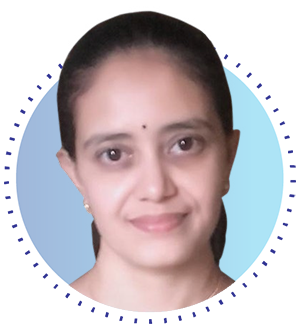


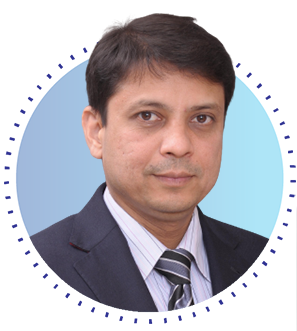
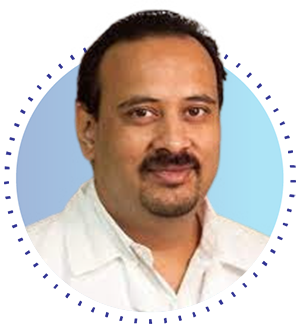


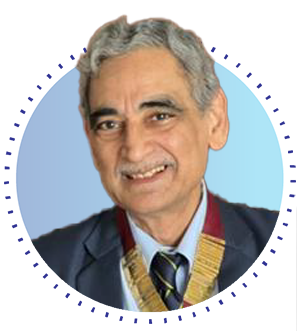


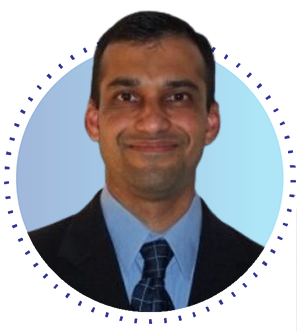

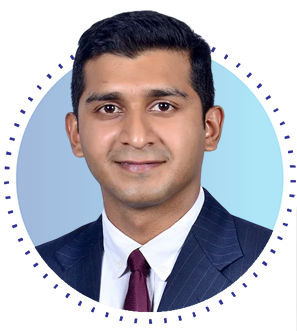





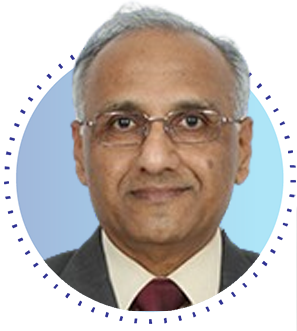




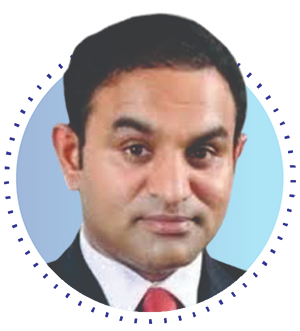





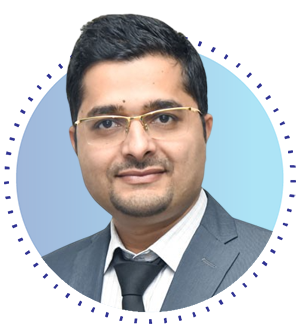


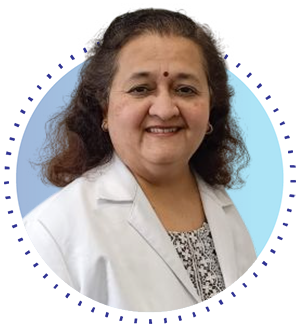




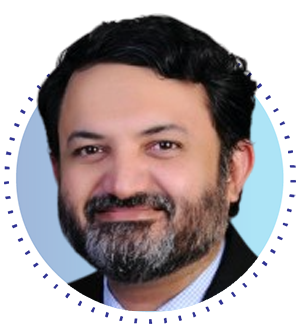

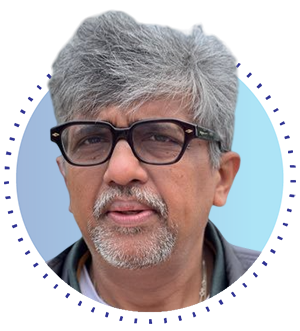






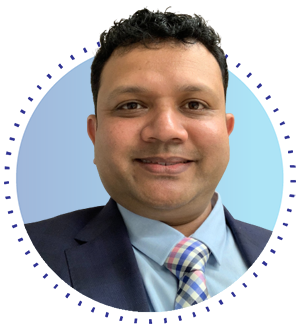


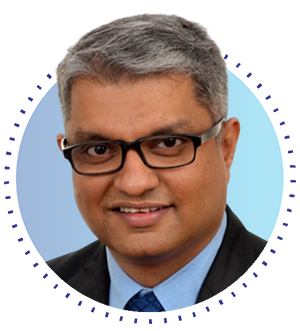





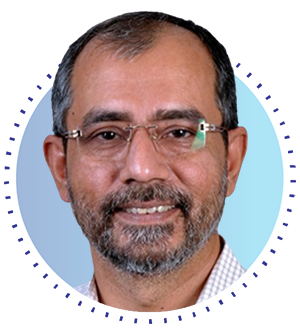


| Category | Late & Spot (From 1st July, 2025) |
|---|---|
| Delegate | ₹ 10,999 + ₹ 1,980 (18% GST) = ₹ 12,979 |
| PG Student / fellow | ₹ 8,000 + ₹ 1,440 (18% GST) = ₹ 9,440 |
Non-Residential Registration Package Includes:
Conference Registration Fees + Sports Injuries in Children Course OR Deformity Course + Conference Lunches on Friday, Saturday and Sunday (15th, 16th and 17th August, 2025) + Gala Dinner on Saturday (16th August, 2025) + Visit of Trade Exhibition + Conference Registration Kit
| Category | Late & Spot (From 1st July, 2025) |
|---|---|
| Twin Sharing Basis (Per Person) | ₹ 19,999 + ₹ 3,600 (18% GST) = ₹ 23,599 |
| Single Occupancy Basis | ₹ 27,999 + ₹ 5,040 (18% GST) = ₹ 33,039 |
| Delegate With 1 Accompanying Person | ₹ 37,999 + ₹ 6,840 (18% GST) = ₹ 44,839 |
Residential Registration Package (2 Nights / 3 Days) Includes:
Room at Hyatt Regency Pune (Check- In on Friday, 15th August, 2025 after 2.00 pm and Check-out on Sunday, 17th August, 2025 before 12.00 noon) + Registration Fees + Sports Injuries in Children Course OR Deformity Course + Conference Lunches on Friday, Saturday and Sunday (15th, 16th and 17th August, 2025) + Breakfast on 16th & 17th August, 2025 + Gala Dinner on Saturday (16th August, 2025) + Visit of Trade Exhibition + Conference Registration Kit
| Category | Late & Spot (From 1st July, 2025) |
|---|---|
| Twin Sharing Basis (Per Person) | 24,999 + ₹ 4,500 (18% GST) = ₹ 29,499 |
| Single Occupancy Basis | ₹ 36,999 + ₹ 6,660 (18% GST) = ₹ 43,659 |
| Delegate With 1 Accompanying Person | ₹ 46,999 + ₹ 8,460 (18% GST) = ₹ 55,459 |
Residential Package (3 Nights / 4 Days) Includes:
Room At Hyatt Regency Pune (Check-In On Thursday, 14th August, 2025 After 2.00 Pm And Check-Out On Sunday, 17th August, 2025 Before 12.00 Noon) + Registration Fees + Sports Injuries in Children Course OR Deformity Course + Conference Lunches On Friday, Saturday And Sunday (15th, 16th And 17th August, 2025) + Breakfast On 15th, 16th & 17th August, 2025 + Gala Dinner On Saturday (16th August, 2025) + Visit Of Trade Exhibition + Conference Registration Kit
| Category | Amount |
|---|---|
| Sports Injuries In Children Course | ₹ 7,500 + ₹ 1,350 (18% GST) = ₹ 8,850 |
| Deformity Course | ₹ 7,500 + ₹ 1,350 (18% GST) = ₹ 8,850 |
| Graf Course | ₹ 7,500 + ₹ 1,350 (18% GST) = ₹ 8,850 |
| Time | Topic | faculty |
|---|---|---|
| 09.00 - 09.30 am | Acute Physeal
Injuries
|
|
| 09.30 - 10.15 am | Distal Radius
Fractures
|
|
| 10.15 - 11.15 am | Forearm
Fractures (Monteggia included)
|
|
| 11.15 - 11.30 AM | TEA BREAK |
| Time | Topic | faculty |
|---|---|---|
| 11.30 - 12.30 pm | The
Supracondylar Show
|
|
| 12.30 - 01.15 pm | Lateral Condyle
Humerus Fractures
|
|
| 01.15 - 02.00 PM | LUNCH |
| Time | Topic |
|---|---|
| 02.00 - 04.00 PM | IFICS
KARYASHALA 1 (DEMONSTRATIONS)
|
| 04.00 - 04.15 PM | TEA BREAK |
| Time | Topic | faculty |
|---|---|---|
| 04.15 - 05.15 pm | You only live
twice… Re-Live surgeries by the experts (6+2min)
|
|
| 05.15 - 06.00 pm | Out of the
box, Uncommon Upper limb fractures (Medial
condyle /
Epicondyle / TRASH / Radial neck / Proximal
humerus)
|
|
| 06.00 - 06.45 PM | KAUN BANEGA
“CASE”PATI…?
|
|
| 06.45 - 07.30 PM | CHOTA
RE-CHARGE….
|
| Time | Topic | faculty |
|---|---|---|
| 08.00 - 09.00 AM | BREAKFAST
SESSION
|
|
| 09.00 - 10.00 AM | PROXIMAL FEMUR
FRACTURES
|
|
| 10.00 - 10.30 AM | ORATION
|
|
| 10.30 - 11.45 AM | TEA BREAK |
| Time | Topic | faculty |
|---|---|---|
| 10.45 - 12.00 noon | Fracture Shaft
Femur
|
|
| 12.00 - 12.45 pm | Fractures
around the knee - Distal femur, Intra-articular
knee injuries, Proximal tibia fractures
|
|
| 12.45 - 01.45 PM | IFICS QUIZ FINALS OVER LUNCH |
| Time | Topic |
|---|---|
| 01.50 - 03.50 PM | IFICS
KARYASHALA (HANDS-ON)
|
| 03.50 - 04.00 PM | TEA BREAK |
| 04.00 - 04.30 PM | IFICS INTERNATIONAL GUEST LECTURE |
| Time | Topic | faculty |
|---|---|---|
| 04.30 - 05.15 pm | Fracture Tibia
and Ankle Fractures
|
|
| 05.15 - 05.45 pm | The IFICS Journey: Felicitation / Awards |
|
| 05.45 - 06.45 pm | Galtise Mistake. What went wrong session - Complications/ Complicated fractures |
|
| 06.45 - 07.30 pm | Fireside
Talks
|
|
| 07.30 PM ONWARDS | LIVE BAND
COCKTAILS & DINNER
|
| Topic |
|---|
| Planning for deformity correction: Making sense of MAD |
| Tool kit for deformity correction principles and case-based techniques |
| Guided growth |
| Bar excision for growth arrest Dr. Taral Nagda |
| Osteotomy using plates |
| Osteotomy using JESS/ monoliteral fixator |
| Osteotomy using ring fixator Dr. Mangal Parihar |
| Complex limb reconstructions - Intraarticular osteotomy Dr. Milind Chaudhary |
| Complex limb reconstruction - Bone gaps / shortening Dr. Ruta Kulkarni, Dr. Ishani Chaudhary |
| Time | Topic | faculty |
|---|---|---|
| 07:30 - 08:00 am | Registration and Introduction & Course Overview | |
| 08:00 - 08:10 am | Ground rules - Top 10 tips on diagnosis and management - How post traumatic deformities in children are different | Dr. Taral Nagda |
| 08:20 - 08.30 am | Discussion | |
| 08:10 - 09:00 am | Tutorial Planning of Deformity
Correction through case examples (15 min each)
|
|
| Time | Topic |
|---|---|
| 09:00 - 09:30 am | Case based learning planning
and execution - Hip (2 cases)
|
| 09:30 - 10:15 am | Case based learning planning
and execution - Knee (3 cases)
|
| 10:15 - 10:30 am | Tea Break |
| 10:15 - 11:00 am | Case based learning planning and execution - Complex limb reconstruction (3 cases) |
| 11:00 - 01:00 pm | Lower Limb Workshops (2
groups)
|
| 01:00 - 01.45 pm | Lunch |
| Time | Topic |
|---|---|
| 01:45 - 02:15 pm | Case based learning planning
and execution - Elbow (4 cases)
|
| 02:15 - 03:00 pm | Case based learning planning
and execution - Wrist & Forearm
|
| 03:00 - 03:15 pm | Tea Break |
| 03:15 - 04:45 pm | Upper Limb Workshop
|
| 04:45 - 05:00 pm | Queries and Closure |
| Time | Topic | faculty |
|---|---|---|
| From Playground to Podium: Treating Sports Injuries in the Young Athlete | ||
| 08.30 - 08.40 am | Introduction & Course Overview | |
| 08.40 - 09.00 am | Plenary Talk: Dealing with the Paediatric Athlete - It's Different | Dr. Shital Parikh |
| 09.00 - 09.40 am | SESSION 1:
THE ADOLESCENT KNEE (7 MIN. EACH)
|
|
| 09.40 - 10.40 am | SESSION 2:
PATELLO-FEMORAL JOINT (7 MINUTES EACH)
|
|
| 10.50 - 11.30 am | SESSION 3:
OSTEOCHONDRITIS DISSECANS IN KNEE IN CHILDREN &
AVULSIONS (7 MIN. EACH)
|
|
| 11.30 - 11.50 AM | TEA BREAK | |
| 11.50 - 12.40 pm | SESSION 4:
ADOLESCENT HIP (7 MIN. EACH)
|
|
| 12.40 - 01.00 PM | CASES FOR DISCUSSION - KNEE & HIP | Dr. Parag Sancheti |
| 01.15 - 02.00 PM | LUNCH | |
| 02.00 - 02.40 pm | SESSION 5:
THE PAEDIATRIC ANKLE (7 MIN. EACH)
|
|
| 03.00 - 04.10 pm | SESSION 6:
UPPER LIMB INJURIES IN PAEDIATRIC ATHLETES
|
|
| 04.20 - 05.00 PM | PANEL DISCUSSION
|
|
| 05.00 - 05.15 PM | CLOSING REMARKS & VALEDICTORY | |
| Time | Topic |
|---|---|
| 09.30 - 09.45 AM | REGISTRATION AND COFFEE |
| 09.45 - 10.00 AM | WELCOME FACULTY INTRODUCTIONS: DR. SANDEEP HEMMADI
|
| 10.00 - 10.15 AM | WORKSHOP 1 - ANATOMICAL DEFINITION: ALL FACULTY
|
| 10.15 - 10.30 AM | WORKSHOP 2 - USABILITY CHECK: ALL FACULTY
|
| 10.30 - 10.45 AM | SCANNING DEMONSTRATION: ALL FACULTY
|
| Time | GROUP 1 | GROUP 2 | GROUP 3 |
|---|---|---|---|
| 10.45 - 11.15 AM | Anatomical identification | Anatomical identification | Phantom Hip scan clinic |
| 11.15 - 11.45 AM | Usability check/homework | Phantom Hip scan clinic | Anatomical identification |
| 11.45 - 12.15 PM | Phantom Hip scan clinic | Usability check/homework | Usability check/homework |
| Time | Topic |
|---|---|
| 12.15 - 12.30 pm | Questions |
| 12.30 - 01.30 PM | LUNCH (PHANTOM STATION AVAILABLE FOR PRACTICE) |
| 01.30 - 01.40 PM |
WORKSHOP 3 - TYPES OF HIP: ALL FACULTY
|
| 01.40 - 01.50 PM |
WORKSHOP 4 - MEASUREMENT & CLASSIFICATION: ALL FACULTY
|
| 01.50 - 02.00 PM |
WORKSHOP 5 - TILTING ERRORS
|
| Time | GROUP 1 | GROUP 2 | GROUP 3 |
|---|---|---|---|
| 02.00 - 02.30 PM | Phantom Hip scan | Types of Hip | Types of Hip |
| 02.30 - 03.00 PM | Types of Hip | Phantom Hip scan | Measurement & tilting errors |
| 03.00 - 03.30 PM | Measurement & tilting errors | Measurement & tilting errors | Phantom Hip Scan |
| Time | Topic |
|---|---|
| 03.30 - 03.45 PM | COFFEE BREAK |
| 03.30 - 04.00 PM | QUESTIONS / DISCUSSION ON TREATMENT AND TILTING: ALL FACULTY |
| 04.00- 04.30 PM | SUMMARY / CLOSING REMARKS: DR. SANDEEP HEMMADI
|
| Session | Topic |
|---|---|
| Session 1: | Friday, August 1, 2025: Basics of Childrens’ fractures: Dr. Taral Nagda |
| Session 2: | Saturday, August 2, 2025: Breaking Point - Physeal Injuries in Kids: Dr. Premal Naik |
| Session 3: | Sunday, August 3, 2025: The Elbow Trap - Mastering Supracondylar Fractures in Children: Dr. Mandar Agashe |
| Session 4: | Friday, August 8, 2025: Beyond the Hinge - Mastering Paediatric Elbow Fractures (That Aren’t Supracondylar): Dr. Sandeep Patwardhan |
| Session 5: | Saturday, August 9, 2025: Twist and Shout - Managing Paediatric Forearm Fractures: Dr. Binoti Sheth |
| Session 6: | Sunday, August 10, 2025: Paediatric Lower Limb Fractures Demystified: Dr. Shital Parikh |
| Hall A | Topic |
|---|---|
| Hall A | IFICS Masterclass 1 - Post- traumatic Deformity correction in children |
| Hall B | IFICS Masterclass 2 - Comprehensive Adolescent Sports Injury Symposium |
| Hall C | “Graf” Basic Hip Ultrasound Course |
| Time | Topic | faculty |
|---|---|---|
| 07.00 - 07.15 pm | Understanding Paediatric fractures - How are kids fractures different than adults? | Dr. T. Easwar |
| 07.15 - 07.30 pm | All Izz Well…. All paediatric fractures remodel…. Or do they..? | Dr. Chintan Doshi |
| 07.30 - 07.45 pm | Reading Paediatric X-rays Right - Missed and Mis-diagnosed ‘fractures’ in children | Dr. Taral Nagda |
| 07.45 - 08.00 pm | Fix It or Forget It? Non-operative Management of common paediatric fractures | Dr. Bansi Khaunte |
| 08.00 - 08.15 pm | When Steel Meets Tiny bones - Surgical Pearls and Indications of surgical management | Dr. Sameer Desai |
| 08.15 - 08.30 pm | The Clock is Ticking - Emergency Paediatric Fractures | Dr. Amit Nemade |
| 08.30 - 09.00 pm | Q&A and case discussions |
| Time | Topic | faculty |
|---|---|---|
| 07.00 - 07.15 pm | Growing Concerns - Anatomy & Biology of the Physis | Dr. Vivek Sodhai |
| 07.15 - 07.30 pm | Crack the Code - Salter-Harris and Beyond | Dr. Jaideep Dhamele |
| 07.30 - 07.45 pm | The Physis on Film - Imaging Strategies That Matter | Dr. Bhushan Sagade |
| 07.45 - 08.00 pm | Hold the Knife - Non-Operative Approaches to Physeal Injuries | Dr. Ashish Ranade |
| 08.00 - 08.15 pm | Cutting Edge - Surgical Decision-Making in Physeal Injuries | Dr. Hitesh Chauhan |
| 08.15 - 08.30 pm | Time Bombs - Complications of Physeal Injuries | Dr. Avi Shah |
| 08.30 - 09.00 pm | Location, Location & Location - Region-Specific Physeal Challenges; Interactive case discussions | Dr. Premal Naik |
| Time | Topic | faculty |
|---|---|---|
| 07.00 - 07.15 pm | Breaking Point - Anatomy and Mechanism of Supracondylar Fractures | Dr. Rohit Jain |
| 07.15 - 07.30 pm | Bend or Break? Radiographic Evaluation & Classification | Dr. Ranjit Deshmukh |
| 07.30 - 07.45 pm | Don’t Miss This! Neurovascular Assessment & Emergencies | Dr. Venkatadass K. |
| 07.45 - 08.00 pm | Cast It Right - Non-operative Management of Type I and Type II | Dr. Deepak Jain |
| 08.00 - 08.15 pm | Pin It to Win It - Surgical Management Essentials with configurations and protocols | Dr. Mandar Agashe |
| 08.15 - 08.30 pm | Twists and Turns - Complications You Can’t Ignore | Dr. Darshan Kapoor |
| 08.30 - 09.00 pm | Interactive case discussion session - Sticky Situations, Difficult Reductions and Open Injuries | Dr. Mandar Agashe |
| Time | Topic | faculty |
|---|---|---|
| 07.00 - 07.15 pm | Puzzle at the Joint - Anatomy & Ossification Review | Dr. K. C. Sreekanth |
| 07.15 - 07.30 pm | The Lateral Shift - Lateral Condyle Fractures Made Simple | Dr. Nirmal Raj Gopinathan |
| 07.30 - 07.45 pm | The Throwing Arm - Medial Epicondyle Fractures | Dr. Binoti Sheth |
| 07.45 - 08.00 pm | Under Pressure - Radial Neck Fractures | Dr. Dhiren Ganjwala |
| 08.00 - 08.15 pm | Point of Impact - Olecranon Fractures and other uncommon elbow fractures | Dr. Rujuta Mehta |
| 08.15 - 08.30 pm | The Hidden Fracture - When the X-ray Lies - Uncovering TRASH lesions | Dr. Hitesh Shah |
| 08.30 - 09.00 pm | Interactive Case Discussion - “Fracture or Fiasco? What Would You Do?” | Dr. Sandeep Patwardhan |
| Time | Topic | faculty |
|---|---|---|
| 07.00 - 07.15 pm | Form Meets Function - Anatomy & Growth of the Paediatric Forearm | Dr. Rajiv Negandhi |
| 07.15 - 07.30 pm | The Greenstick Spectrum - Incomplete Fractures Explained | Dr. Chaitrali Gundawar |
| 07.30 - 07.45 pm | A Fine Balance - Complete Diaphyseal Fractures of the Forearm | Dr. Chintan Doshi |
| 07.45 - 08.00 pm | When Bones Won’t Behave - Operative Fixation of Forearm Fractures | Dr. Rajeev Nirawane |
| 08.00 - 08.15 pm | Targets and Traps - Monteggia and Galeazzi Injuries | Dr. Viraj Shingade |
| 08.15 - 08.30 pm | The Twist Factor - Understanding and Managing Rotational Deformity | Dr. Jayanth Sampath |
| 08.30 - 09.00 pm | Interactive Case Discussion - “Twists, Bends, Breaks - What Would You Do?” | Dr. Binoti Sheth |
| Time | Topic | faculty |
|---|---|---|
| 07.00 - 07.15 pm | Tiny Tots, Big Falls - Femoral Shaft Fractures - Conservative management | Dr. Sushant Srivastava |
| 07.15 - 07.30 pm | Tiny Tots, Big Falls - Femoral Shaft Fractures - Operative management | Dr. Tushar Agarwal |
| 07.30 - 07.45 pm | Slippery Slopes - Proximal Femur and Hip Fractures | Dr. Sandeep Vaidya |
| 07.45 - 08.00 pm | Twists and Breaks - Tibial Shaft and Toddler's Fractures | Dr. Tarang Khairnar |
| 08.00 - 08.15 pm | Falling Flat - Distal Tibia and Triplane Fractures | Dr. Govardhan Ingale |
| 08.15 - 08.30 pm | Common Foot fractures in a child | Dr. Sandeep Hemmadi |
| 08.30 - 09.00 pm | Interactive case discussion session on lower limb fractures | Dr. Shital Parikh |
Welcome to all delegates to IFICS 2025.
IFICS 2025 provides a
great opportunity to show case the scientific work done
by the Residents, Fellows & Junior Consultants. The abstracts are invited
under
the following categories:
The abstract submission process for both the categories is common and 12
abstracts will be shortlisted after evaluation by the scientific committee.
All single case reports are eligible for interesting case presentation.
Case series should include cases more than 3 and less than 6.
Eligible candidates: Postgraduate residents, Active fellows, Junior
consultants
within 5 years of clinical practice.
Format for abstract preparation:
- all abstracts to be submitted in word format
- Times New Roman font in size 12
- Text in double spacing
- Should contain less than 300 words
- Abstract for case series must be structured with subheadings:
Introduction,
Methods, Results & Conclusions
- Abstract for interesting case must be structured with subheadings:
Introduction,
Case report & Conclusion.
The abstract should not reveal the names of the authors or the institute
where the
research was conducted.
General Instructions:
Please submit your abstracts to ificssecretary@gmail.com
Last date for receipt of abstract is 30th June 2025.
Scientific Committee reserves the right for making the final decision.
The delegate must register for IFICS 2025 to be eligible to make the podium
presentation.
SUBMISSION ENDS ON 30TH JUNE 2025
For any queries, please contact Dr. Vivek Sodhai +91 9921241790

